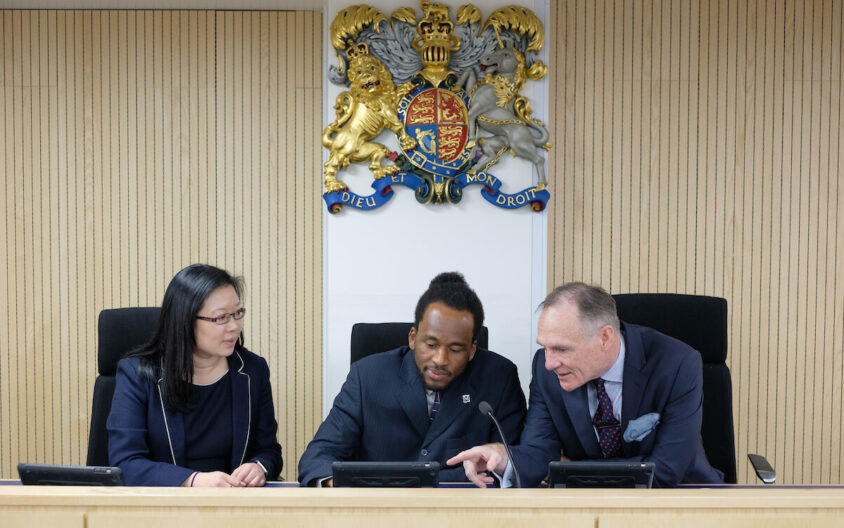
Photo: © Philip Wolmuth
What do magistrates do?
Magistrates, also known as Justices of the Peace, listen carefully to all evidence given in court and follow structured decision-making processes (such as sentencing guidelines in criminal cases) and case law to reach fair decisions. They are advised on points of law by a legal adviser who sits in court with them.
Magistrates sit in benches of three, made up of two wingers and a presiding justice who receives special training to act as chair. All three magistrates contribute to the decision-making, but the presiding justice speaks on their behalf in court.
Magistrates sit in criminal, family and youth courts.
Who can be a magistrate?
Magistrates come from a range of backgrounds and work in all sorts of fields. They don’t need legal experience or special qualifications—magistrates are ordinary people with common sense and the capacity to make fair decisions.
Magistrates can be appointed from the age of 18 and retire at 75.
To become a magistrate, you need to show the following characteristics:
- good character
- commitment and reliability
- social awareness
- sound judgement
- understanding and communication
- maturity and sound temperament.
There are a small number of jobs which could prevent you from being a magistrate due to a conflict of interest, for example if you are a police officer you cannot sit in criminal courts.
You can find out more about eligibility at I can be a magistrate.
Do magistrates get paid?
Magistrates are unpaid volunteer members of the judiciary. However, they can claim expenses to cover certain costs.




